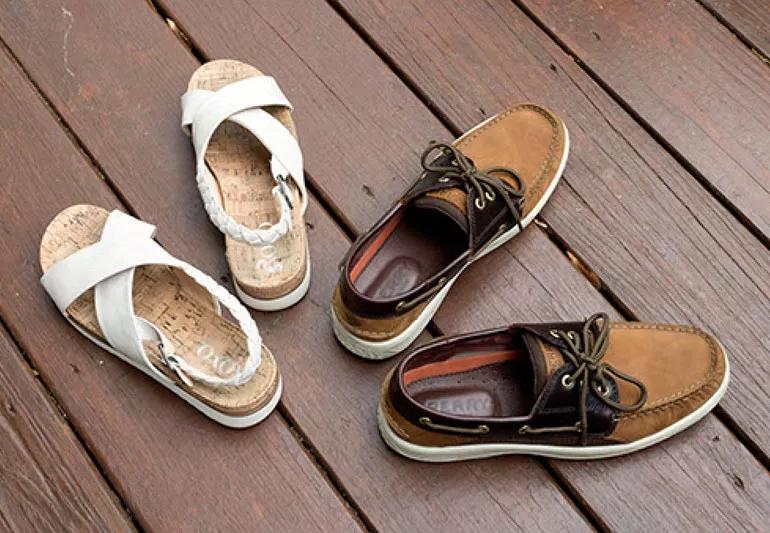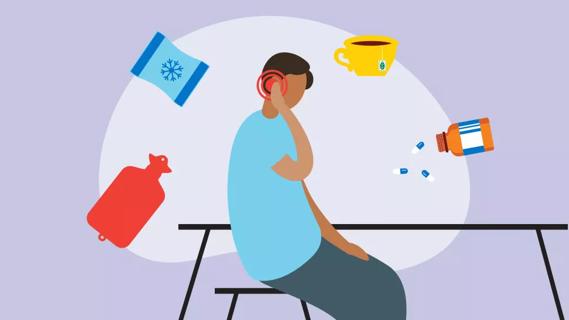Advertisement
Keep stepping through summer with this good-for-your-feet footwear guide

Flip flops, heels, wedges, tennis shoes, flats – summer shoe choices are endless. When it comes to summertime foot fashion may be fun, but unfortunately not always functional for your feet, legs, spine or posture. Still, podiatrist Joy Rowland, DPM, suggests that shoes aren’t the only culprit of poor foot health.
Advertisement
Cleveland Clinic is a non-profit academic medical center. Advertising on our site helps support our mission. We do not endorse non-Cleveland Clinic products or services. Policy
“Many foot problems are inherited,” she says.“In fact, your genes are more important than the shoes you wear when it comes to foot health. But you can definitely avoid some pitfalls and add some comfort by choosing your shoes wisely and switching them up occasionally.”
You can’t change your genes but you can change your shoes. So what’s the perfect pair if you want to keep your feet happy and healthy all summer long? Here’s your guide to summer footwear with advice from Dr. Rowland.
“Unfortunately, the perfect pair doesn’t exist,” Dr. Rowland says.“The perfect shoe for you is not the perfect shoe for me. We all have a different foot type, body shape, posture and movement habits, so you’ll have to do a little trial and error to find what gives your feet the most support and comfort.”
Even if some summer styles aren’t the best for foot health, you can minimize the impact they have on your foot by wearing them occasionally, or only for short periods of time. Wearing them for shorter periods of time helps reduce the impact on your body.
Flip flops are best worn for short periods of time because they can aggravate foot problems. They’re OK for a walk to the mailbox or the beach, but never wear them daily. Choose flip flops with some padding or thick bottoms to cushion the ball of your foot. Also look for flip flops that have arch support.
Advertisement
While flats go with everything, they’re not the best option for long-term wear with lots of walking like a day of shopping or sightseeing.
“The arch tends to fall, which causes the legs to rotate inward,” Dr. Rowland says. “Once that knee starts to go, then your hips go, so it changes your posture.”
If you wear flats, choose a pair with arch support and cushioning on the bottom or room for an insole.
Slipping on a pair of heels every day can be problematic, especially if they’re high. Heels shift your body weight forward and can lead to lower back pain as your spine and hip muscles adjust. The extra pressure on your knees can lead to arthritis.
“If you do have to wear a higher heel it’s best to mix up your heel heights,” Dr. Rowland says.
Wearing the same heel height all the time can cause the back of your leg and Achilles tendon can get tight. Try wedge heels, which can also provide better support.
“Reserve wearing high heels for special occasions,” Dr. Rowland also says. “Pointy-toe heels, especially, are harsh on your feet.”
Overall, the best shoe to wear daily is a good-quality sneaker. Walking, running or cross training shoes tend to lace up or fasten up to support your whole foot. And due to the nature of their job they tend to be made from materials that are more breathable and moisture resistant.
Be careful of trendy athletic shoes that are more about design than what’s on the insole. Some athletic shoes are made from lower quality, less breathable material and can cause other foot problems like odor or sweating — especially in warmer summer temperatures.
“Proper fit is important across all shoe styles.” Dr. Rowland suggests. “The better a shoe fits your feet, the less work the rest of your body must do to make up for it.”
A good-fitting shoe relieves foot pain and prevents future problems for your feet. Taking these steps to choose them wisely can help you out your best foot forward into summer!
Advertisement
Learn more about our editorial process.
Advertisement

Try stretching, massage, elevation and a supportive pair of shoes to help relieve foot aches and pains

Concussion protocol describes the steps needed to test for concussion and return to play — timelines vary

Using proper form and the right equipment can help keep you injury-free while gathering up that colorful foliage

Both are forms of tendinopathy, but one is more of an acute injury caused by inflammation, while the other is the result of degeneration over time

You may have to keep your leg straight, but you can sleep in any position

Watch the weather, keep lines of communication open and make sure everyone on board has access to a personal lifejacket or flotation device

Build breaks into training routines to prevent the wear and tear behind repetitive stress

The results aren’t great, and the risks — like vision problems — aren’t worth it

Not all ear infections need antibiotics — cold and warm compresses and changing up your sleep position can help

A glass of lemon water in the morning can help with digestion and boost vitamin C levels, and may even help get you into a better routine